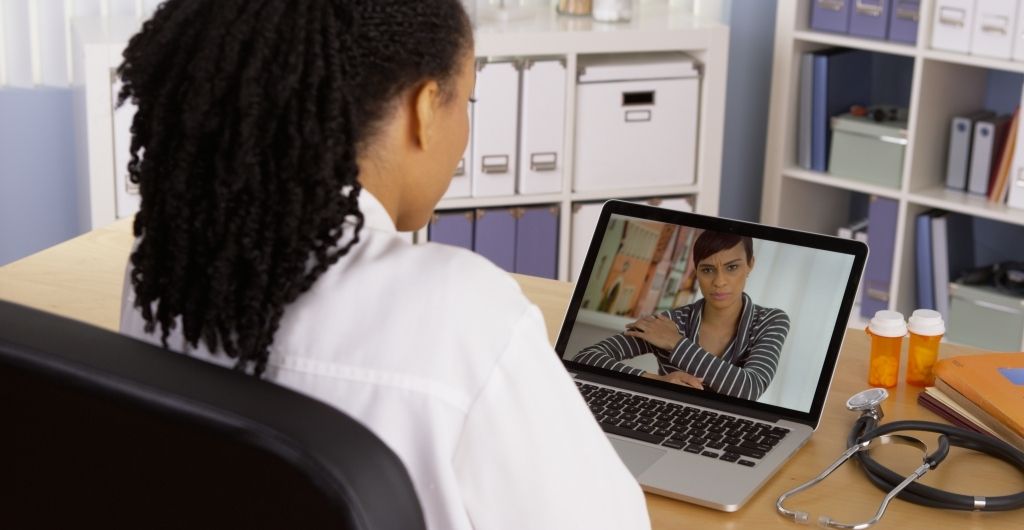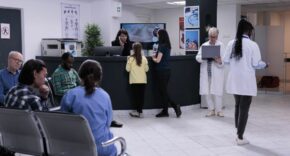
By Dr Ian Jackson, Refero’s medical director and clinical safety officer
There’s very little that hasn’t already been written about what university life currently entails. Getting a meaningful academic and social experience is difficult, and for many, not working as well as it could. Students, mostly young adults living their first independent years, are being asked to adapt at breakneck pace to an experience they weren’t expecting and, in many cases, don’t feel equipped to cope with. There is already much evidence that, for the current university student cohort, declining mental health is an issue, and one enveloped with the extra trauma of loneliness and isolation.
Mental health support, counselling, psychotherapies and psychiatry and GP services are all still very much available, with universities and the health and social care system adapting at speeds not seen ever before in terms of technology investment and digitisation. Online appointments, or teleconsultation services to give them the correct terminology, are being deployed across the UK. Professionals are still seeing patients, in both senses of the world. From my discussions with mental health support providers and doctors, I’ve come to the conclusion that we’ve moved beyond the adaptation phase already, and that the process of accessing your support digitally is now normalising. However, is receiving treatment and therapy via video becoming as normal as the method of delivery? What do students, and therapists think?
I spoke to a university psychotherapist working in London, who wishes to remain anonymous, about what teleconsultation has enabled her to provide. She has used it since March, to reach out to student patients who were already receiving one on one, face to face therapy.
“So much of the work I do with patients relies on physical, as well as emotional cues. Seeing their expressions, their ability to be present in conversation, and where they focus when they are talking, is vital. From this perspective, video consultation is a step-change from converting a face to face meeting to a phone call. However, the conversion of laptop screen to ‘safe space’ where we can have the same conversations as we had in my office is very often a process that is time consuming and stressful. What I mean by that is that the change itself is often counter-productive in terms of therapeutic progress.
“The connection with me, on the screen, present and ready to listen though, has been immensely helpful for many of my student patients. I am certain that we would all rather be in my office, but for some patients, the video call has made therapy more accessible, and this has caused some difficulties. Students, typically, would not receive university provided therapy during the summer recess in regular volume, but video calling has meant that services have continued. Many in my profession use the recess to study, re-group ourselves, and prepare for the next academic year. This hasn’t been possible in 2020.
“Maintaining the professional and patient relationship, navigating the new variables, such as different times for appointments, privacy issues for the patients, and of course, sometimes, poor connections, adds another extra dimension to our work. As you can imagine, as student mental health support practitioners, we are all aware of how necessary our services are at the moment. There’s a huge commitment to help and support, and teleconsultation is enabling this very efficiently.”
I also connected with NUS-USI President Ellen Fearon, to ask her opinion on the effect teleconsultation is having on HE in Northern Ireland. She told me, “Students in Northern Ireland were facing a mental health crisis before this pandemic hit, and now things have gotten so much worse. They are struggling with isolation, financial and academic pressures, and ongoing uncertainty about what the next few weeks and months will look like.
“Access to online counselling is a useful resource for students and for many facing long periods of self-isolation it has been a lifeline. It can also be valuable for students who have to travel to their campuses and would prefer to access services from their own home.
“However online services should never be considered a replacement for in-person support. Some students experience significant barriers to online counselling, for instance those in multi-occupancy housing who may not have access to a private space to talk about sensitive topics. Student choice should be the priority, and institutions must make sure that students are able to access mental health support in a way that works best for them.”
As a doctor myself, I agree with Ellen completely, as the pandemic changes shape, we simply cannot lose sight of in person patient consultations, they are not a past tense issue. Covid-19 is going to dictate student life into next year, and higher education, and the NHS mental health services need to remain as open and approachable as possible. I do believe teleconsultation enables that, particularly as the digitisation of access and bookable services improves with it. However, we must keep close watch on this generation of young people and move with what they require as much as possible. We’re all aware that, as a nation we are more upfront about mental health issues than ever before. The dialogue about how support services are provided must remain equally as open.













